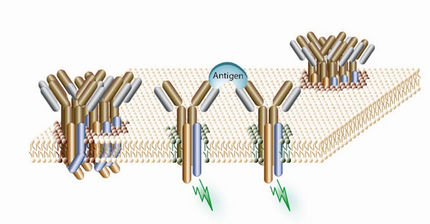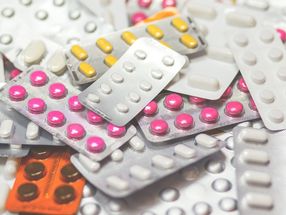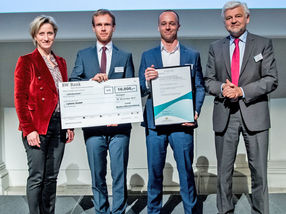IASB Finalizes Code of Conduct for Gene Synthesis
In collaboration with UC Berkeley’s Goldman School of Public Policy, the International Association synthetic biology (IASB) announced the finalization of a Code of Conduct for gene synthesis. The code covers ethics, biosafety and biosecurity aspects of gene synthesis and has been enacted at the second annual industry workshop of the IASB in Cambridge, Mass.
Representatives of gene synthesis, biotech, synthetic biology and pharma companies as well as from the US government, law enforcement and academia emphasized the requirement for self-regulation in this fast developing industry.
Markus Fischer, Entelechon GmbH, stated: “Synthetic biology offers a vast potential, both economically and in terms of societal benefits. This code will help to leverage this potential in a safe and responsible way. Once the field matures, the Code will likely be complemented by appropriate legislation.”
One focus of the Code of Conduct is the screening of DNA sequences. The code mandates that for all orders of synthetic genes, vendors must determine whether a sequence is associated with a pathogenic organism. If there is any association a subject matter expert must evaluate the risk potential of the sequence. In the case of a confirmed risk, the vendor will fill the order only if the customer is legitimate and can demonstrate that the sequence is ordered for benevolent research. If not the request has to be declined.
"The next thing we will do is to reach out to everyone in the industry with this standard and invite them to join it," says Stephen Maurer, associated professor in public policy and expert for homeland security at the University of California, Berkeley, who helped to formulate the code. The aim is to set a benchmark for the responsible conduct of the gene synthesis business upon which further regulations can be built. The Code of Conduct has been signed by the members of the IASB, other gene synthesis companies and academic institutions are invited to subscribe to the code as well. China-based Shanghai Generay Biotech has signed on as the first non-IASB member. In a next step the IASB is developing a certificate which characterizes institutions committed to the code of conduct.
A second focus of the workshop was the introduction of a new database for virulence factors. The VIREP called project was initiated by the Goldman School and IASB in response to the current lack of sequence-level data on virulence factors and the molecular biology of pathogenicity. VIREP enables gene synthesis facilities to collaborate on the screening of potentially dangerous DNA sequences and allows to exchange data on previous screening decisions. It will be a valuable tool to facilitate screening and increase its quality while at the same time lowering the costs of screening.
The workshop agreed upon the formation of a Technical Expert Group on Biosecurity. This group, comprised of computational biologists, molecular biologists and other experts, will convene regularly and develop benchmarks, guidelines and specifications for DNA sequence screening and technical measures that increase biosafety and biosecurity in synthetic biology.
Other news from the department politics & laws

Get the life science industry in your inbox
By submitting this form you agree that LUMITOS AG will send you the newsletter(s) selected above by email. Your data will not be passed on to third parties. Your data will be stored and processed in accordance with our data protection regulations. LUMITOS may contact you by email for the purpose of advertising or market and opinion surveys. You can revoke your consent at any time without giving reasons to LUMITOS AG, Ernst-Augustin-Str. 2, 12489 Berlin, Germany or by e-mail at revoke@lumitos.com with effect for the future. In addition, each email contains a link to unsubscribe from the corresponding newsletter.

















































